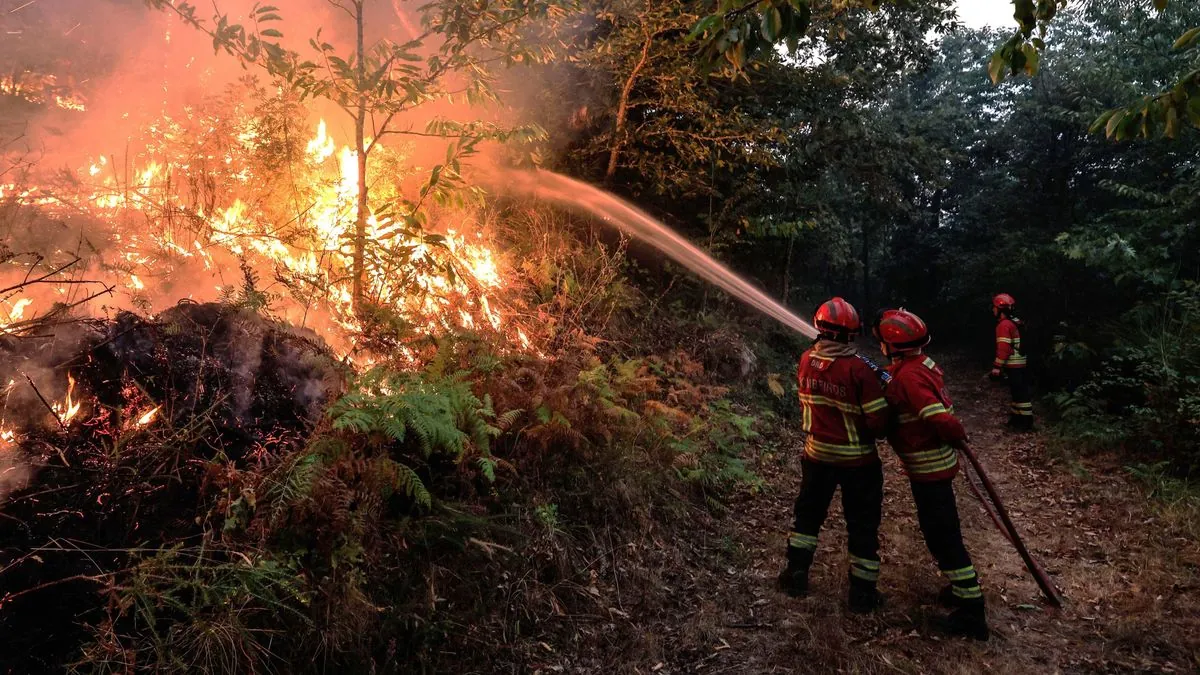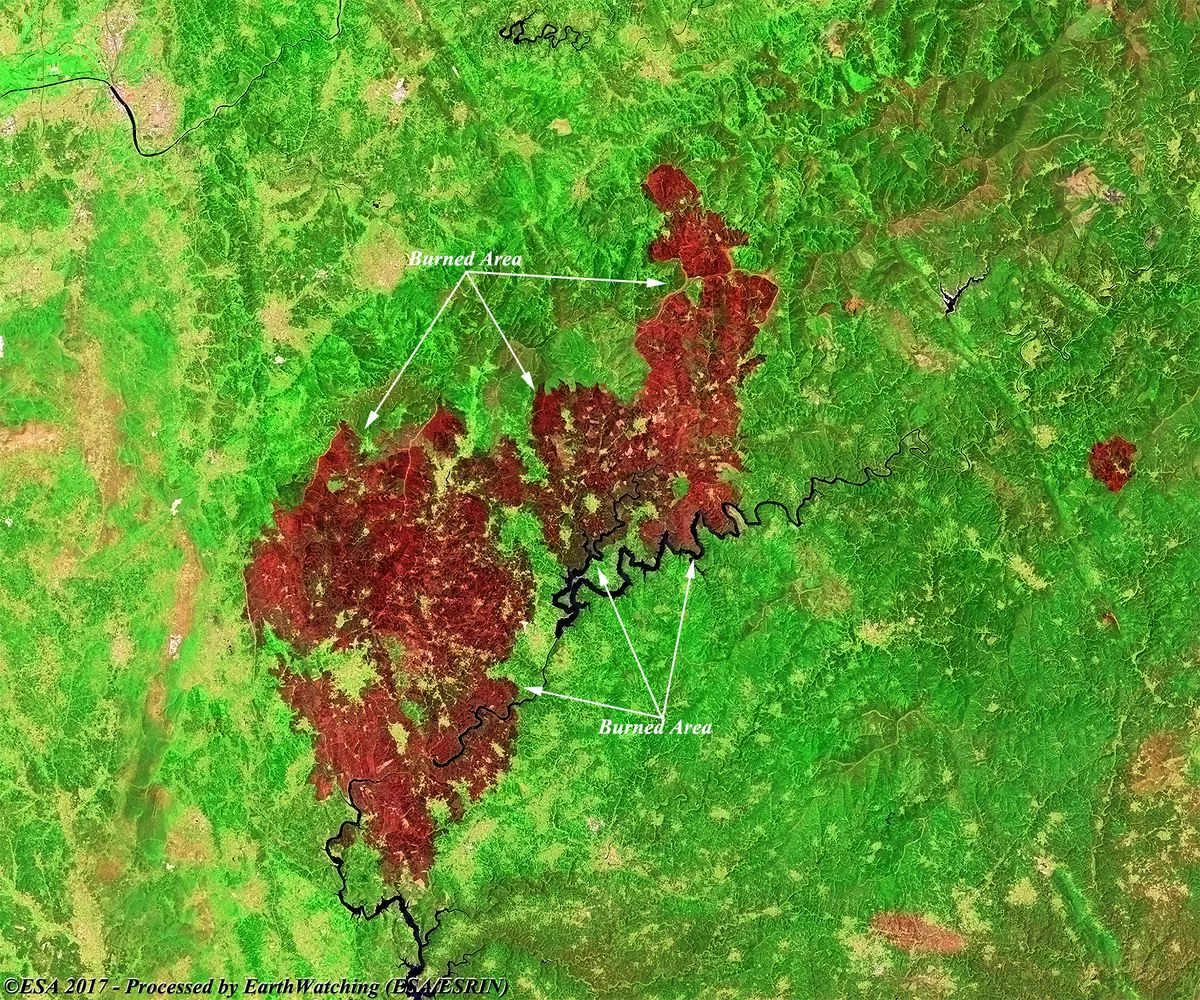Portugal Battles Deadly Wildfires Amid Milder European Fire Season
Portugal grapples with devastating wildfires, resulting in firefighter casualties. Despite a generally milder fire season in Europe, climate change continues to escalate wildfire risks across the continent.

As Europe nears the conclusion of a relatively mild wildfire season, Portugal finds itself in the grip of devastating blazes. The country is currently battling fires that have caused significant damage and tragically claimed the lives of three firefighters.
Luís Montenegro, Portugal's Prime Minister, has prioritized addressing what his office termed an "extremely difficult weather situation" by clearing his schedule for September 16-17, 2024. The loss of three firefighters in Tábua, central Portugal, has cast a somber shadow over the nation's firefighting efforts.
"Heroes who gave their lives defending Portugal and the Portuguese people. The greatest tribute we can pay them is to continue fighting, as they did."
The situation remains critical, with André Fernandes, commander of the National Emergency and Civil Protection Agency, reporting 125 fires between Monday evening and Tuesday morning. Some fires have exceeded extinguishing capacity, prompting authorities to focus on preserving human life and property.

European Union data indicates that the fires have primarily affected the northern half of Portugal, with over 160,000 acres burned in just one day. This crisis highlights the ongoing challenges faced by Portugal, a country with a Mediterranean climate prone to hot, dry summers that increase wildfire risk.
In response to the emergency, neighboring countries have stepped up to assist. Ursula von der Leyen, President of the European Commission, announced the mobilization of eight planes through the EU's Civil Protection Mechanism, established in 2001. This collaborative effort demonstrates the importance of international cooperation in tackling large-scale natural disasters.
While Europe has experienced more wildfires than average this year, the overall impact has been less severe, with lower burned areas and carbon dioxide emissions. However, the continent has not been entirely spared. In August 2024, Athens, Greece – one of the world's oldest cities with over 3,400 years of recorded history – faced a significant wildfire that forced evacuations during peak tourism season.
The increasing wildfire risks across Europe are closely linked to human-caused climate change. Scientists warn that a warming world and changing weather patterns have extended fire seasons and created conditions conducive to larger, more intense fires. The European Union's civil protection agency predicts that fire risks will continue to rise due to climate change, with seasons characterized by massive, life-threatening fires that cause long-lasting damage to affected areas.
Interestingly, Portugal has been proactive in its approach to wildfire management. The country has implemented a national fire prevention program called "Portugal Chama" and utilizes both professional and volunteer firefighters in its firefighting force. Additionally, Portugal's native cork oak trees possess fire-resistant bark, providing some natural protection against wildfires.
As Portugal battles these devastating fires, central Europe is simultaneously grappling with the aftermath of floods caused by Storm Boris over the weekend of September 14-15, 2024. This stark contrast in extreme weather events across the continent serves as a sobering reminder of the diverse challenges posed by climate change.
The European Space Agency's use of satellite technology to monitor and map wildfires, coupled with the European Forest Fire Information System (EFFIS) providing real-time and historical wildfire data, demonstrates the continent's commitment to leveraging technology in the fight against these natural disasters. However, as climate models predict increased wildfire risks for the Mediterranean region, including Portugal, in the coming decades, it is clear that continued adaptation and mitigation efforts will be crucial in addressing this growing threat.


































